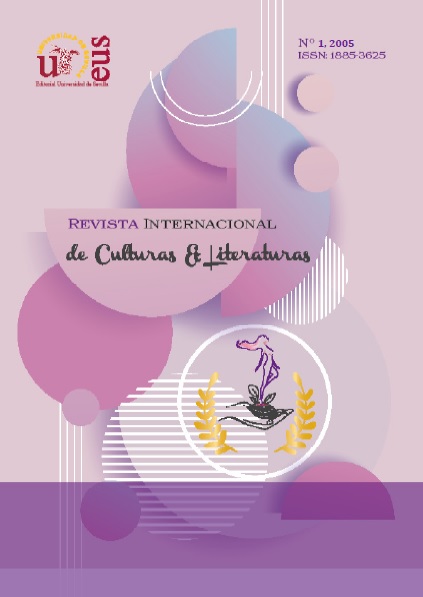THE MEDIA, BORDERS AND FEMINISMS
DOI:
https://doi.org/10.12795/RICL.2005.i01.09Keywords:
frontera, cultura, identidadAbstract
Since Iuri Lotman gave importance to the border of the semiosphere, as a filter that separated the extra-semiotic from the intra-semiotic universe, many changes have occurred in cultures, and the nomadic wandering of immigrants, artists, businessmen or gangsters, have destabilized the limits from which the relations between different sign universes could be drawn. These are moments in which the exchanges of people and cultural goods make the limits of the borders porous, tracing for some authors, "invisible borders" (Méndez Rubio), "border epistemologies" or "thoughts of the borders" (Mignolo), while that, for others, those conceptions can be grouped in the Third Spaces (Bhabha), the transculturation (Ortiz) or the creolization (Glissant) of the contemporary world. From these enunciative spaces the subaltern cultures of the South, in this case of Europe, Africa or Latin America, destabilize the North or the supposed centers of power. Nor should we ignore, in this context, the positions that indicate that contemporary hybridization does not allow us to speak more about borders (Silva, Hardt and Negri), however porous their limits may be considered.
Downloads
Metrics
References
Andalzúa, G., Borderlands / La frontera, The New Mestiza. San Francisco, Spinters / Aunt Lute, 1997.
Bhabha, H. K., El lugar de la cultura, Buenos Aires, Manantial, 2002.
Butler, J., Cuerpos que importan: sobre los límites materiales y discursivos del “sexo”, Buenos Aires, Paidós, 2002.
Deleuze, G., Conversaciones, Valencia, Pre-textos, 1996.
Deleuze, G. y Guattari F., ¿Qué es la filosofía?, Barcelona, Anagrama, 1996.
Deleuze, G. y Guattari F., Mil mesetas: capitalismo y esquizofrenia, Valencia, Pre- textos, 2000.
Derrida, J., La diseminación, Madrid, Fundamentos, 1975.
Derrida, J., Dar el tiempo, la moneda falsa, Barcelona, Paidós, 1995.
Foucault, M., Microfísica del poder, Madrid, La Piqueta, 1982.
Foucault, M., Las palabras y las cosas, México, Siglo XXI, 1986.
Glissant, É., Introducción a una poética de lo diverso, Barcelona, Del Bronce, 2002.
Gómez Peña, G. (2002) “El barrio virtual @ la otra frontera” en ZoneZero http://www.zonezero.com/magazine/articles/gomezpena/gomezpena.html
Haraway, D. J., Ciencia, cyborgs y mujeres. La reinvención de la naturaleza, Madrid, Cátedra, 1991.
Hardt, M. y Negri, A., Imperio, Barcelona, Paidós, 2002.
Maffesoli, M., El tiempo de las tribus. El declive del individualismo en las sociedades de masas,
Barcelona, Icaria, 1990.
Martín Barbero, J., De los medios a las mediaciones. Comunicación, cultura y hegemonía, Barcelona, Gustavo Gili, 1987.
Ortiz, R.,“La modernidad- mundo: Nuevos referentes para la construcción de las
identidades colectivas” en Son de tambora, http://www.comminit.com/la/lacth/sld5147.html, 2004.
Said, E., Cultura e imperialismo, Barcelona, Anagrama, 1996.
Silva, V., “Los nuevos escenarios epistemológicos de las teorías de la comunicación:
incursiones en torno al posestructuralismo y al marxismo” en Redes.com. Sevilla, Anuario del Instituto Europeo de Comunicación y Desarrollo, 2003.
Downloads
Published
How to Cite
Issue
Section
Accepted 2019-02-04
Published 2005-04-09
- Abstract 214
- PDF (Español (España)) 65




